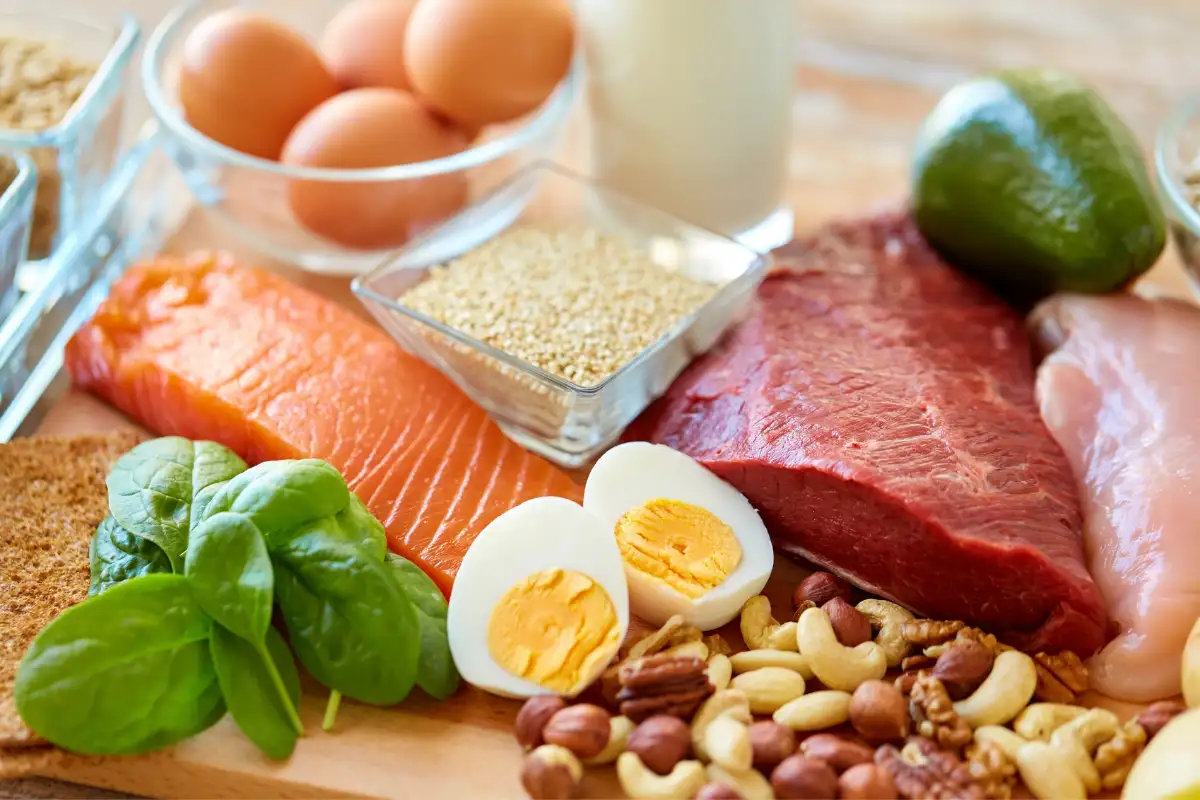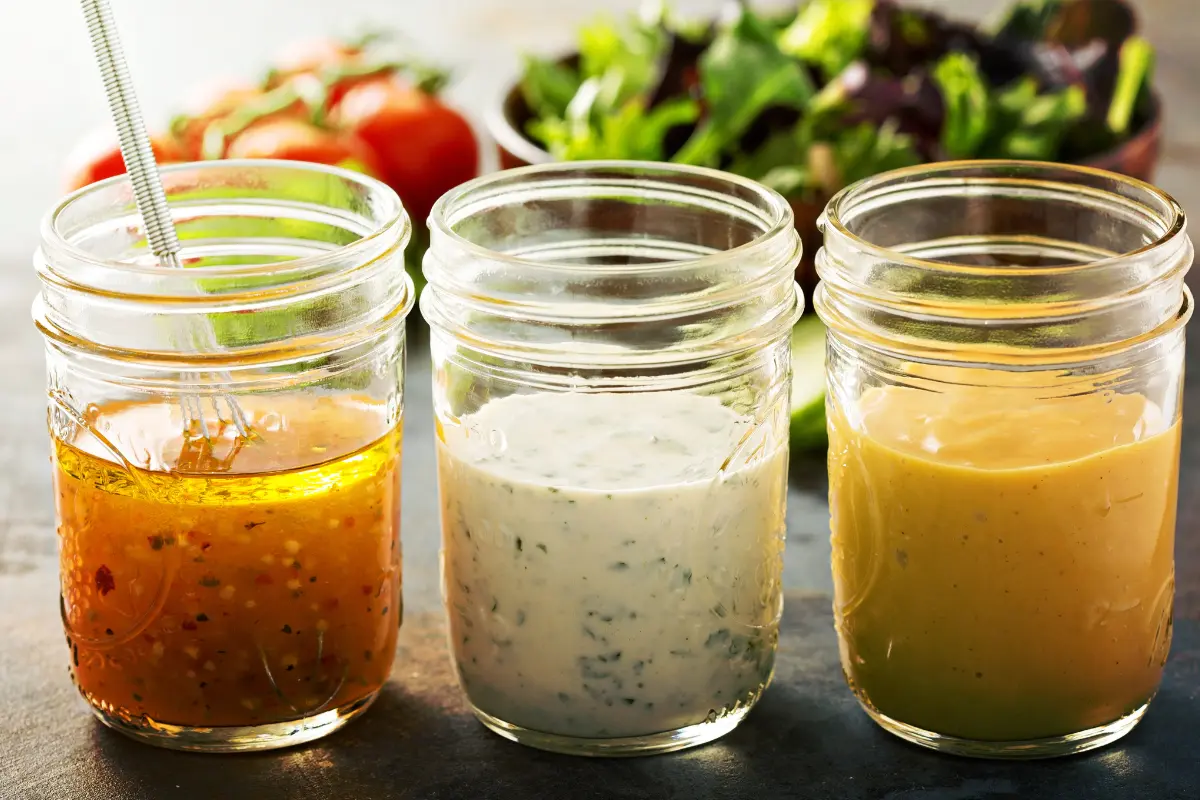
“Too much protein is bad for your kidneys!” Does that sound familiar?
Nutrition experts have debated daily protein intake since the first time protein powder was thrown into a shaker bottle. But what if we’re still quoting outdated (or misunderstood) studies? Worse, what if we make daily nutrition choices based on their findings?
So, I asked Brittany Werner—a WAG Coach and RDN featured in publications like Forbes, Women’s Health, and HuffPost—to break down protein needs, shed light on Muscle Protein Synthesis (MPS), share individualized considerations, and finally answer the question, “Can I eat too much protein?”

Advertisement
Understanding Protein Needs
What is Protein?
Protein, carbohydrates, and fats are the three macronutrients. Dietary protein makes you feel full, helps balance blood sugar, and contains the essential amino acids that your body needs for optimal functioning.
According to Werner, “In the body, protein is a key component of hormone and enzyme production, supports metabolic health, aids the immune system, and helps muscles repair, recover, and grow stronger from daily use and intense training sessions.”
But can there be too much of a good thing?
Daily Recommended Protein Intake
“Current scientific evidence supports the safety and efficacy of higher protein intake within recommended ranges, which is around 0.8 to 1.1 grams of protein per pound of body weight per day for most individuals.” Werner shares.
Yep, she said grams per pound, almost double the official 0.8 grams per kilogram of bodyweight Recommended Daily Allowance (RDA).
Advertisement
But did you know that if you hit the RDA for all three macronutrients, you’d only get about 40% of your daily calorie needs (based on age, sex, goals, and activity level)? This means that you still need to eat more than half your daily calories, and it stands to reason that some of these calories would come from protein.
Werner adds, “In general, high-protein diets are considered safe for most healthy individuals and can even be beneficial, especially for those engaged in regular physical activity, resistance training, or muscle-building efforts.”
Calculate your protein needs for free here, or work with an experienced nutrition coach for more professional and personalized targets and advice.
Where to Get Protein
Protein is primarily found in meat, dairy, eggs, seafood, and vegan and vegetarian sources and can be categorized in many ways. Organizing protein by “leanness” is usually most helpful for macro trackers. The infographic below will help you recognize the protein sources with the highest fat content.

Advertisement
Protein is usually the trickiest macro for nutrition beginners to hit. This article's tips will be useful if you’re wondering how to get enough protein daily.
The Benefits of Protein
What is Muscle Protein Synthesis
Muscle protein synthesis, or MPS, converts the amino acids found in dietary protein into muscle protein. In other words, MPS is the process through which muscle is built.
Brittany pointed me to this study that provides insights into the benefits of larger protein loads and the importance of determining your ideal protein needs for MPS per meal (or daily). “This number is ultimately influenced by various factors such as individual goals, body weight, training intensity, and overall dietary composition,” she says.
Satiety and Weight Management
No one likes to feel hungry, and protein helps you feel full. When you’re satiated from a high-protein meal, you’re less likely to overeat other foods that increase daily calorie intake. So, whether or not you’re tracking macros, focusing on eating protein in every meal is a great way to indirectly control calories.
Advertisement
Protein’s Impact on Metabolism and Energy
Protein helps build and maintain muscle, the most metabolically active tissue in the body. This is one reason people with more muscle need more calories to maintain their weight.
“Protein also has the highest thermic effect of food—or the energy expended in the digestion, breakdown, and absorption of the foods you eat—coming in at around 20–30% as opposed to 0-3% for fat and 5-10% for carbs,” Werner adds.
The TLDR? Eating protein burns helps with calorie control both directly and indirectly.
Risks of Excessive Protein Intake
Werner assures us, “In general, high-protein diets are considered safe—and even beneficial—for most healthy individuals.
“However, individual responses to dietary changes can vary, and certain pre-existing health conditions may necessitate a more cautious approach to high protein intake. Specifically, individuals with pre-existing kidney conditions may need to monitor their protein intake, as the kidneys help process the by-products of protein metabolism.
Advertisement
“But, for most people without underlying health concerns, there is generally no need to worry about high-protein diets, and working with a 1-on-1 nutrition coach is a great way to find out exactly how much protein you need.”
So, Can You Eat Too Much Protein?
Brittany shares a simple answer: “Probably not! If you’re a healthy individual and don’t have any preexisting conditions, you’ll likely find that you have to work hard to get enough protein throughout the day. Standardized protein recommendations are actually lower than what would support optimal health and definitely too low to support the performance levels and weight loss WAG members—and most people—are looking to achieve”
So there you have it! You can’t eat too much protein unless you have a preexisting condition or are going well over the 0.8-1.1g per pound levels we recommend. If you’re worried about getting too much (or, more likely, not quite enough!) protein, learn more about working with Brittany or another one of our amazing coaches!
Schedule a Free Intro Call
Working Against Gravity has led the macro tracking and health space for over a decade. Our team doesn’t just understand the science of nutrition—we’ve spent years mastering the art of tailoring it to fit your life. That means no cookie-cutter plans, just real strategies that have worked for over 30,000 people.
Schedule a free call with our team to learn how working with a 1-on-1 WAG coach will help you reach your goals.



